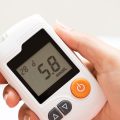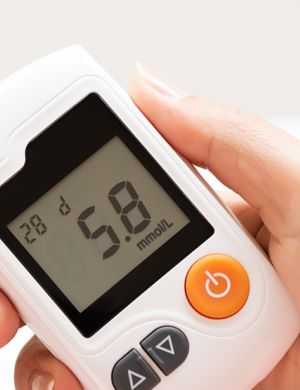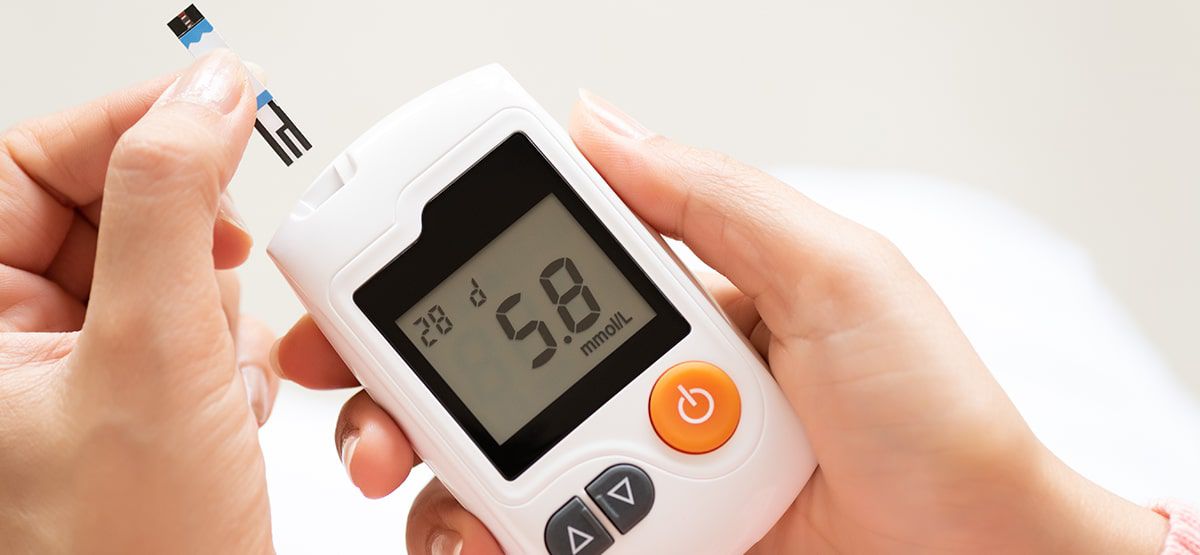
Medical Devices-USA/Europe Regulatory News-September 2023
USA (FDA)
Informed Consent Guidance for IRBs, Clinical Investigators, and Sponsors
The guidance is intended to assist institutional review boards (IRBs), clinical investigators, and sponsors in complying with FDA’s informed consent regulations for clinical investigations. This document is structured to first present general guidance on FDA’s regulatory requirements for informed consent and a discussion of the roles of IRBs, clinical investigators, sponsors, and FDA related to informed consent, followed by a series of frequently asked questions.
The term informed consent is mistakenly viewed as synonymous with obtaining a subject’s signature on the consent form; however, obtaining documentation of a subject’s informed consent is only part of the consent process. Informed consent involves providing a prospective subject, or their legally authorized representative (LAR), with adequate information to allow for an informed decision about participation in the clinical investigation prior to enrollment. Informed consent also involves facilitating the prospective subject’s understanding of the information, providing adequate opportunity for the prospective subject to ask questions and to consider whether to participate, obtaining the prospective subject’s voluntary agreement to participate prior to enrollment, and continuing to provide information as the clinical investigation progresses or as the enrolled subject or situation requires
Off-The-Shelf Software Use in Medical Devices
The guidance document is intended to provide information regarding the recommended documentation sponsors should include in a premarket submission for FDA’s evaluation of off the-shelf (OTS) software used in a medical device. The recommendations in this guidance are also intended to facilitate FDA’s premarket review. This guidance describes information that would be typically generated and documented during software development, verification, and validation. The least burdensome approach was applied to identify the minimum amount of information that, based on our experience, would generally be needed to support a premarket submission for a device that uses OTS software.
For the purposes of this guidance, unless otherwise stated, the term premarket submission includes, but is not limited to, premarket notification (510(k)) submission, De Novo classification request, Premarket Approval (PMA) application, Investigational Device Exemption (IDE), or Humanitarian Device Exemption (HDE).
Europe
MDR and IVDR Communication Survey
The objective of this online survey is to better understand the information needs around the EU Regulations on medical devices (MDR) and in vitro diagnostic medical devices (IVDR). Particularly, how the changes in the legislation are affecting the stakeholders that are directly involved and what challenges the stakeholders are facing to ensure a smooth transition to the new regulations.
Flowchart to assist in deciding whether or not a device is covered by the extended MDR transitional period
The flowchart is intended to assist manufacturers and other relevant actors in deciding whether or not a device is covered by the extended transitional period provided for in Article 120 of Regulation (EU) 2017/745 on medical devices (MDR), as amended by Regulation 2023/607. The flowchart should help to determine the eligibility, conditions and deadlines for the placing on the market or putting into service of certain devices in accordance with Article 120 MDR. The user of the flowchart is advised to consult the text of the MDR, which takes precedence over the flowchart, and the Q&A on practical aspects related to the implementation of Regulation (EU) 2023/607.
Czech Republic (NISZP)
Information sheet on medical devices and in vitro diagnostic medical devices intended for competent authorities in non-EU/EEA countries
Manufacturers in third countries wishing to place devices on the EU market should familiarise themselves with the rules, timelines and obligations applicable under the Regulations.
As an authority in a third country that imports devices from the EU, you need to know about the timelines for implementing the Regulations. Please also bear in mind that during the transition periods, devices that are compliant with the previously applicable Directives and devices that are compliant with the current Regulations co-exist and may simultaneously be placed or made available on the EU market. This is of particular importance for those third countries that rely on the CE marking of devices to grant access to their markets.
Latvia (ZVA)
New Regulations On Medical Devices Come Into Force
The State Medicines Agency informs that today, on August 23, 2023, the Cabinet of Ministers Regulation No. 461 of August 15, 2023 ” Medical Device Regulations ” came into force.
The new regulations on medical devices have been adopted to implement the obligations arising from the norms of Regulation (EU) 2017/745 of the European Parliament and of the Council on medical devices (hereinafter – Regulation 2017/745).
With the entry into force of these regulations, the regulations of the Cabinet of Ministers of November 28, 2017 No. 689 “Procedures for registration, conformity assessment, distribution, operation and technical supervision of medical devices”.
New Rules For Clinical And In Vitro Diagnostic Performance Studies Of Medical Devices Come Into Force
The State Medicines Agency informs that today, on August 23, 2023, the Cabinet of Ministers’ regulations of August 15, 2023 No. 455 ” Procedure for conducting clinical studies of medical devices intended for humans and performance studies of in vitro diagnostic medical devices “.
The new regulations have been adopted to implement Regulation (EU) 2017/745 of the European Parliament and of the Council on medical devices (hereinafter – Regulation 2017/745) and Regulation (EU) 2017/746 on in vitro diagnostic medical devices (hereinafter – Regulation 2017/ 746) obligations resulting from norms in the field of clinical trials and performance studies.
With the entry into force of the new regulations, the regulations of the Cabinet of Ministers of September 21, 2010 No. 891 “Procedures for clinical research of medical devices intended for humans”.
Poland (URPL)
Announcement of the President of the Office of August 30, 2023 on the provision and making available to laypeople, intended for self-use, in vitro products other than self-testing devices, sample containers or general laboratory products
According to Art. 16 section 1 point 3 of the Act on Medical Devices, which implements the provisions of Regulation (EU) 2017/746, it is prohibited to supply and make available to a lay person, for self-use, an in vitro diagnostic medical device other than a self-testing device, a sample container or a general laboratory product, and for breaking this prohibition there is a fine of up to PLN 250,000, as referred to in Art. 98 of this Act.
Self-testing devices shall be designed and manufactured in such a way as to ensure ease of use in the home environment by the layman and to minimize the possibility of user error in handling the self-testing device and in interpreting the results. The conformity assessment of self-testing products requires the appropriate participation of a notified body. This body issues an appropriate certificate of conformity, and in the marking and instructions for use of such a product, the identification number of this body is placed next to the CE mark. The product labeling also includes information that the product is a self-monitoring device.
Recognizing the nature and importance of the above-mentioned problem, the President of the Office informs that it is permitted to provide and make available to persons who are not professional users (laymen) only tests intended for self-use (“self-testing products”) which:
- Have been placed on the market as self-testing devices and have a certificate issued by a notified body (i.e. they have been verified by an independent institution),
- Have the number of the notified body that certified this test next to the CE mark ,
- Have packaging (labels), instructions for use and a user interface in Polish, and
- Have a clear wording on the packaging (label) and in the instructions for use that they are intended for self-testing.
Slovakia (SUKL)
Issuance of Free Sale Certificates (FSC) from 1 August 2023 based on the amendment to act 362/2011 coll. (Act 293/2023 coll.)
On the basis of §129 paragraph 2, letter j) of Act 362/2011 Coll. on medicines and medical devices in the version effective from 1 August 2023 (amendment 293/2023 Coll.), ŠÚKL is again authorized to issue free sale certificates (FSC) for manufacturers/authorized representatives (EC-REP based in the Slovak Republic) for medical devices /diagnostic medical devices in vitro.
Amendment to the Act on Medicines and Medical Devices and on Amendments and Supplements to Certain Acts 362/2011 Coll., Temporary Version Valid from 1 August 2023
Requirements for testing medicines, medical devices and diagnostic medical devices in vitro, including ethical assessment by the ethics committee of human medicine, for clinical testing of medical devices and for studying the performance of diagnostic medical devices in vitro (hereinafter referred to as the “ethics committee”),
Unauthorized treatment of medicines and medical devices is treatment of medicines and medical devices in a way other than that established by this law or a special regulation. Unauthorized handling of medicines and medical devices is not the handling of medicines or medical devices, including in vitro diagnostic medical devices, by the Ministry of Health of the Slovak Republic (hereinafter referred to as the “Ministry of Health”), if these medicines or medical devices were procured or acquired by the Ministry of Health in a different way than procurement during a declared state of emergency, state of emergency or extraordinary situation (hereinafter referred to as “crisis situation”) or are the subject of contractual relations concluded by the Ministry of Health during a crisis situation; the Ministry of Health shall ensure the storage, delivery and dispensing of human medicines and medical devices through the holder of a permit for handling medicines and medical devices according to this Act.
Placing a medical device on the market is the first making a medical device available to another person for a fee or free of charge for the purpose of distribution or use on the market of the Member States, except for use for the purpose of a clinical trial, regardless of whether it is a new medical device or a renewed medical device.
Switzerland (SWISSMEDIC)
Swissdamed – Swiss Database on Medical Device
The swissdamed application – the Swiss Database on Medical Devices – is a Swissmedic IT system that makes it possible to apply the Swiss regulations on medical devices and in vitro diagnostic medical devices.
It is structured around two interconnected modules, which only registered users can access. It also includes a freely accessible search function.
- Registration of companies and economic operators – ACT module (available early 2024)
- Swissdamed – freely accessible platform (available early 2024)
- Registration of devices – UDI module (available from summer 2024)
The above modules will be made available in different releases.
United Kingdom (MHRA)
Three new UK Approved Bodies to certify medical devices announced by the MHRA
The Medicines and Healthcare Products Regulatory Agency (MHRA) has designated three new UK Approved Bodies, almost doubling the UK’s capacity to certify medical devices, supporting faster certification of safe and effective medical devices for healthcare professionals and the public.
Before appointing an Approved Body, the MHRA conducts a detailed assessment process to ensure that organizations are stable and able to undertake impartial and objective conformity assessment activities, that they have an appropriate quality management system, the capacity and competence to undertake assessments and the processes they use meet the relevant regulatory requirements.
After successful designation, the MHRA monitors UK approved bodies’ activities including by regular audits and by witnessing some of their audits of manufacturers.
For any organisations wanting to become an approved body, please contact info@mhra.gov.uk.
MORE Registrations – user reference guide
A step-by-step guide on using the MORE Platform for Submissions of device related incidents.
Update: Updated Submissions guidance to reflect: Update to screenshots, guidance for draft reports and auto-population of submitter fields.
Notify the MHRA about a clinical investigation for a medical device
The guidance explains about How to notify the MHRA of your intention to carry out a clinical investigation for medical devices.
A notification to the MHRA will not be required for medical devices that are UKCA / CE / CE UKNI marked for the purpose that is under investigation.
Update: Added information on fees payable in relation to clinical investigation and amendments to clinical investigations
Medical devices: UK approved bodies
UK approved bodies listed under Medical Devices Regulations 2002 (SI 2002 No 618, as amended) (UK MDR 2002).
Update: Published – Intertek Medical Notified Body UK Ltd Medical Devices Scope.
Export medical devices
Order a certificate of free sale to export medical devices outside the UK. You may need a Certificate of Free Sale (CFS) to export medical devices. To find out, check the import rules of the country you are exporting to. Talk to your importer or get help researching your export market.
The MHRA only issues a CFS as a service to UK exporters for medical devices. If you need a CFS for other products, contact the Department for Business and Trade (DBT).
Update: Updated ‘Certificates of Free Sale for Medical Devices’ reference guide.
Register medical devices to place on the market
The guidance explains how to register your medical devices with the Medicines and Healthcare Products Regulatory Agency (MHRA) for the markets in Great Britain and Northern Ireland.
Requirements for Great Britain-based manufacturers placing devices on the Northern Ireland market
Great Britain manufacturers must designate an Authorized Representative based in the EU or Northern Ireland in order to place a device on the Northern Ireland market.
Where an EU-based Authorized Representative is appointed, the Great Britain-based manufacturer must register all device classes other than Class I devices and general IVDs (that are not for self-testing) with the MHRA.
Where a Northern Ireland-based Authorized Representative is appointed, the Authorized Representative must register all devices with the MHRA.
Please note that new requirements have been introduced regarding the registration of custom-made devices in Northern Ireland. Please see below for further information.
Distributors and suppliers are not required to register with the MHRA.
Update: Updated – Account Management Reference Guide & Device Registration Reference Guide.
Medical devices: guidance for manufacturers on vigilance
Information for manufacturers of medical devices about reporting adverse incidents and field safety corrective actions to the MHRA.
Adverse incidents involving medical devices that occur in the UK must be reported to the Medicines and Healthcare Products Regulatory Agency (MHRA). The MHRA is responsible for the UK medical device market. Once a medical device has been placed on the UK market, the manufacturer must submit vigilance reports to the MHRA when certain types of incidents that involve their device occur in the UK. The manufacturer must also take appropriate safety action when required. The manufacturer will need to ensure their device meets appropriate standards of safety and performance for as long as it is in use.
The notification and evaluation of adverse incidents and field safety corrective actions (FSCA) involving medical devices is known as the medical device vigilance system. Comprehensive information on the medical device vigilance system is given in MEDDEV 2.12/1 rev 8 and the additional guidance under ‘Post-Market Surveillance’, and describes what, how and when to report adverse incidents involving medical devices on the UK market.
Update: Guidance updated to reflect the latest information regarding the MORE portal.
CE marking recognition for medical devices and in vitro diagnostics
The Medicines and Healthcare Regulatory Agency (MHRA) has released a statement on CE marking recognition for medical devices and in vitro diagnostics. The extended recognition of CE marking does not apply to medical devices or IVDs. The government has already put in place legislation that amends The Medical Device Regulations 2002 (SI 2002 No 618, as amended) (UK MDR) to extend the acceptance of CE marked medical devices on the Great Britain market. More specifically, legislation now enables CE marked medical devices to be placed on the Great Britain market.
- General medical devices compliant with the EU medical devices directive (EU MDD) or EU active implantable medical devices directive (EU AIMDD) with a valid declaration and CE marking can be placed on the Great Britain market up until the sooner of the expiry of the certificate or 30 June 2028
- In vitro diagnostic medical devices (IVDs) compliant with the EU in vitro diagnostic medical devices directive (EU IVDD) can be placed on the Great Britain market up until the sooner of the expiry of the certificate or 30 June 2030, and
- General medical devices, including custom-made devices, compliant with the EU medical devices regulation (EU MDR) and IVDs compliant with the EU in vitro diagnostic medical devices regulation (EU IVDR) can be placed on the Great Britain market up until 30 June 2030.
Ireland (HPRA)
HPRA process for certificates of free sale applications for devices qualifying under Regulation 2023/607
If devices qualify under Regulation 2023/607, and you would like a certificate of free sale from the HPRA for those devices, we will request you to complete and submit our new application form together will all other required documentation. For devices that qualify under Regulation 2023/607, this will include:
- Declaration of conformity,
- Manufacturer self-declaration letter,
- Proof of payment,
- Device schedule,
- Unless otherwise stated in the declaration of conformity, a letter confirming the physical site of manufacturer.
The HPRA will introduce a three-year expiry date for such certificates from the date of issue of the certificate.
Don’t miss out! Click here to stay in touch.
Categories
- Biopharma (59)
- Consumer Health (22)
- Cosmetics (11)
- Diagnostics (5)
- Digital Health (8)
- Food (2)
- Medical Device (113)
- OTC (5)
- Regulatory Intelligence (13)
- Standards (41)
Recent Blogs
Get the latest updates from Vistaar

Related Posts
CONNECT WITH US

Let's talk about how Vistaar can help you





